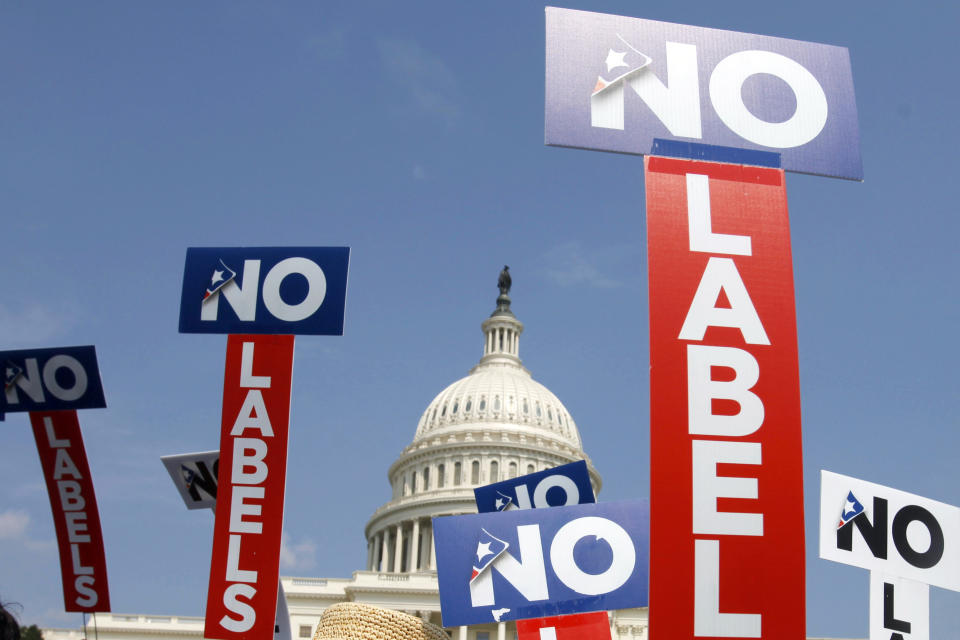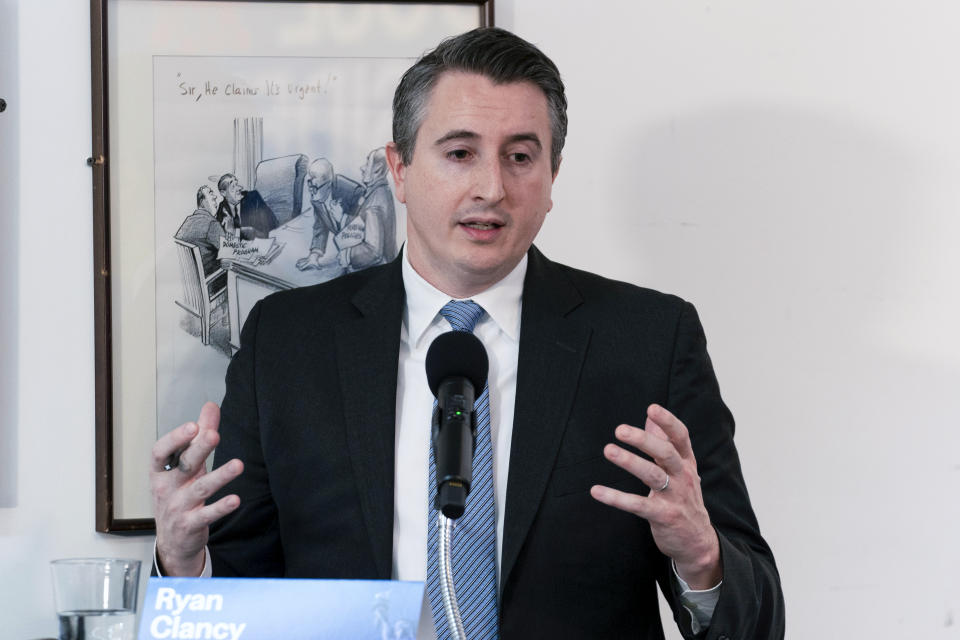The third-party group No Labels will meet privately as it decides whether to launch a 2024 bid
- Oops!Something went wrong.Please try again later.
- Oops!Something went wrong.Please try again later.
- Oops!Something went wrong.Please try again later.
PHOENIX (AP) — The third-party presidential movement No Labels plans to meet next week to discuss its path forward as it decides whether to help launch an independent candidacy for the White House.
Candidates will not be chosen at the March 8 meeting, said Ryan Clancy, the No Labels chief strategist, in a statement. Instead, the meeting will be “a chance for our delegates to speak freely and honestly about the path ahead for our 2024 project.”
No Labels has drawn intense attention from Democratic critics of former President Donald Trump who worry the group could pull voters from President Joe Biden. Having raised huge sums of money, No Labels has conducted many of its operations in private and fought efforts to disclose who is funding its movement.
Clancy said the meeting will gather 800 delegates from all 50 states who would be responsible for picking a presidential candidate if No Labels decides to go forward with what it’s calling a “unity ticket.” No Labels officials would not say who the 800 delegates are or how they were selected, despite promises last year to release detailed plans for how it would make a decision.
The media will be barred from the meeting. No Labels already canceled plans for a springtime convention in Dallas.
Complaining that Americans don't want a rematch between Trump and Biden, No Labels has stockpiled cash from secret donors and worked to secure ballot access in every state. Its leaders have said they'll give their ballot line to a bipartisan ticket with a presidential candidate from one major party and a vice presidential nominee from the other if they see a viable path to victory.
But political analysts from across the ideological spectrum have cast doubt on a third party’s ability to win enough states to be elected president. Critics say No Labels would rely on support from anti-Trump Republicans and conservatives in battleground states, whose support Biden needs to be re-elected.
No Labels suffered setbacks when top potential recruits walked away. Larry Hogan, the former Republican Maryland governor, decided to run for U.S. Senate instead. West Virginia Democratic Sen. Joe Manchin said he won't run for president.
Two Democratic-aligned groups filed campaign finance complaints, hoping to crimp No Labels’ pipeline of campaign cash and force the group to follow the same rules as formal political parties.
Third Way, a group of centrist Democrats, has warned potential candidates that they'll be blamed for re-electing Trump if they agree to run on a No Labels ticket.


